What turned you away from PAP?
-
Originally posted by Loor:
the country wouldn't be where it is without the PAP....me thinx this is something we should be grateful for.
I don't know about other people and groups.
But what I do know is that the chinese people in Singapore certainly don't need the PAP to prosper.
That is what I know.
The largest Chinese dialect group in the late nineteenth century were the Hokkien, who were traditionally involved in trade, shipping, banking, and industry.
The next largest group, the Teochiu, engaged in agricultural production and processing, including gambier, pepper, and rubber production, rice and lumber milling, pineapple canning, and fish processing.
Cantonese served as artisans and laborers and a few made their fortunes in tin.
The two smallest groups, the Hakka and Hainanese, were mostly servants, sailors, or unskilled laborers.
Because wealth was the key to leadership and social standing within the Chinese community at that time, the Hokkien dominated organizations such as the Singapore Chinese Chamber of Commerce and supplied most of the Chinese members of the Legislative Council and the Chinese Advisory Board.
http://countrystudies.us/singapore/6.htm
Tan Kah Kee —"Henry Ford of Asia"
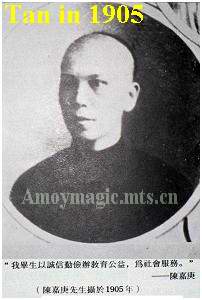
A Double Portion of Tan’s Spirit
Innovative education is of course nothing new at XMU. Our university has been pioneering all elements of modern education ever since it was founded in 1921 by the “Henry Ford of Asia,” Mr. Tan Kah Kee. This famous Overseas Chinese patriot gave an estimated USD 100 million to education, thanks his business acumen and frugal lifestyle. But Mr. Tan left us much more than mere money.
As I teach in Organizational Behavior, organizations’ personalities often reflect those of their founders, and XMU is certainly no exception. XMU’s 85 years of success show it has inherited a double portion of Mr. Tan’s spirit and vision for a better China, a better Asia, and a better humanity.
Our university’s founder, Mr. Tan Kah Kee (Chen Jiageng, 1874-1961), gave an estimated 100 million USD to education over his lifetime but he was born into a humble family of merchants in the village of Jimei, on the mainland across from Xiamen Island. Tan worked the fields and the fishnets until he started school at the age of nine, and in the fall of 1890 he moved to Singapore to help in his father’s rice shop. His father’s business went under in 1904, but the savvy son pulled together enough capital to buy 500 acres of forested land in Singapore and started a pineapple plantation.
Back to top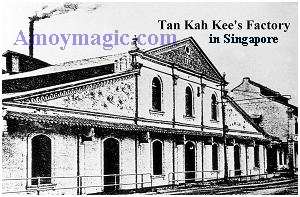
The Rubber Magnate Tan rapidly expanded into rice milling, manu-facturing, sawmills, real estate, and ocean transport, but it was rubber that really stretched his fortune. He set aside a few acres of his pineapple planta-tion and eventually had 10,000 acres of rubber trees. His expansion from rubber planting to rubber manufacturing helped create the rubber industry and made him one of the four great Rubber Barons.
By the mid 1920s, the Rubber Magnate’s Singapore-based empire em-ployed over 30,000 people, had 150 offices on 5 continents, and did business with 48 countries. But prices plummeted after 1926 and rubber never quite bounced back. Even worse, after Mr. Tan protested Japan’s brutal “Jinan Massacre” (May 3rd, 1928), his factory was burned to the ground. Yet even as he struggled through the Great Depression he continued to finance Jimei School, Xiamen University, and Chinese and English schools in Singapore—a feat he managed in part because of his frugality.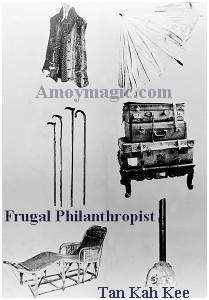
The Frugal Philanthropist Rich philanthropists generally give but a fraction of their wealth while alive, but leave behind large foundations since the only thing they can take with them when they die is their reputation. But Mr. Tan quite literally gave like a prince while living like a pauper, subsisting on little more than rice porridge and potatoes, and using the same umbrella and battered suitcases for decades. Other rich Chinese of his day built luxurious villas on nearby Gulangyu Islet, but Mr. Tan contented himself with a sim-pler home in his native Jimei. As he wrote to a relative, his hometown still had great needs and “I cannot put myself before the community.”
The Japanese destroyed Tan’s home in 1938, and when the Chinese government offered to rebuilt it after Liberation, Tan insisted that war-damaged school buildings be rebuilt first. His home was finally renovated in 1955 and he lived there from 1958 until 1960, when he moved to Beijing. Tan’s house was restored to its original design in 1980 and is now a museum and meeting place for the Jimei School Committee. I think the most moving exhibits are the battered suitcases, umbrellas and worn-out shoes that the “pauper millionaire” used for decades.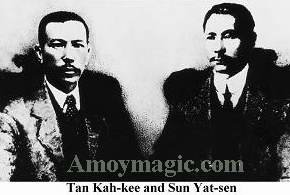
Mr. Tan’s Vision for China Mr. Tan was a social and political reformer from youth. He supported Sun Yat-sen, and at one point accounted for about 1/3 of the Kuomintang’s finances (a feat he no doubt regretted when Chiang Kai Shek absconded to Taiwan with his money and everyone else’s). But Tan’s greatest hope for China was in modern education.
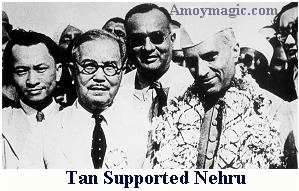 In 1894, at age 21, Tan began a family school in Jimei. In 1912, during the first year of the new Republic of China, Tan returned to China and on January 27, 1913 opened the Jimei Primary School. Between 1920 and 1926 he opened a school a year until Jimei School Village had 11 schools, includ-ing a middle school and schools in agriculture, commerce, forestry, navigation, etc. In addition, Jimei School Village’s education promotion department donated to more than 70 middle schools and primary schools throughout Fujian province.
In 1894, at age 21, Tan began a family school in Jimei. In 1912, during the first year of the new Republic of China, Tan returned to China and on January 27, 1913 opened the Jimei Primary School. Between 1920 and 1926 he opened a school a year until Jimei School Village had 11 schools, includ-ing a middle school and schools in agriculture, commerce, forestry, navigation, etc. In addition, Jimei School Village’s education promotion department donated to more than 70 middle schools and primary schools throughout Fujian province.
Back to top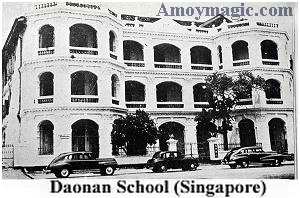
Supporting Education Abroad Tan also began or funded at least seven schools in Singapore, including Tao Nan (1907), Ai Tong (1912), Chung Fook Girls School (1915), Chung Poon (1915), the Singapore Chi-nese High School (1918), Nanyang Normal School (1941) and Nan Chaio Girls High School (1947). . His largesse was not limited to Chinese schools. He gave $30,000 to the Anglo-Chinese School in 1919 and in 1941 gave $10,000 to Raffles College, which later merged with the Medical College and eventually became the University of Singapore.
Xiamen University—Apple of Tan’s Eye In early November, 1920, Mr. Tan offered one million Yuan to start Xiamen University, which began with the Normal and Commerce Departments, and later expanded to five Colleges and 17 departments in Literature, Science, Law, Commerce and Education. Xiamen University captured the imagination of Chinese and foreigners alike. In the 1920s, Paul Hutchinson wrote,
one million Yuan to start Xiamen University, which began with the Normal and Commerce Departments, and later expanded to five Colleges and 17 departments in Literature, Science, Law, Commerce and Education. Xiamen University captured the imagination of Chinese and foreigners alike. In the 1920s, Paul Hutchinson wrote,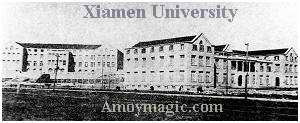 “This school [Xiamen University] is entirely a Chinese institution, with no foreign teachers and no foreign connections, and right out in a small Chinese village. The course of study is being made very practical… When we think of the future days, it is one of the most encouraging things to be seen in the whole of China.”
“This school [Xiamen University] is entirely a Chinese institution, with no foreign teachers and no foreign connections, and right out in a small Chinese village. The course of study is being made very practical… When we think of the future days, it is one of the most encouraging things to be seen in the whole of China.”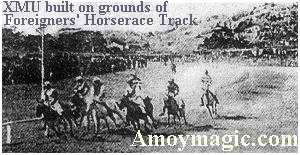
Mr. Tan emphasized quality education. He sent students abroad, hired teachers from other areas, purchased the latest equipment, and emphasized sports. By the spring of 1937, his financial fortunes had so suffered that he allowed the government to take over Xiamen University, but he continued to subsidize it. Tan wrote to the minister of education that he had had “a fine start and a poor finish,” and would “live in perpetual regret.” [If only he could see XMU today!]
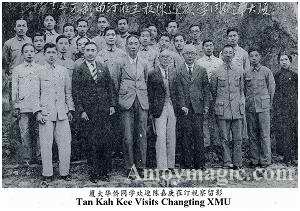
Back to top
XMU Retreats to Changting That same year, Xiamen University relocated to Changting in West Fujian to escape destruction by the Japanese, who had occupied Xiamen. [Read more in the next chapter, “Sa Bendong”]. The Japanese surrendered in August, 1945, and on October 21, 500 mass organizations in Singapore welcomed Tan’s return from a decade of exile in Java. A large meeting in Chongqing on November 18, 1945, celebrated Mr. Tan’s safety, and Chairman Mao inscribed a scroll about Tan which read, “Banner of Overseas Chinese, Glory of the Nation.”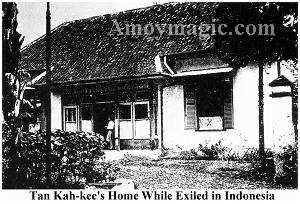
XMU returned to Xiamen after Japan’s defeat and the new president and eminent biologist, Dr. Wang Deyao, immediately set out rebuilding and ex-panding the campus. Tan’s vision and money and Wang’s leadership paid off. XMU was designated a key national university in 1962 and has been mushrooming ever since.
On October 1, 1949, Chairman Mao invited Mr. Tan to Tiananmen to participate in the ceremony of the founding of the People’s Republic of China. Tan settled down in his homeland in 1950 and devoted the rest of his life and fortune to its reconstruction.
Back to top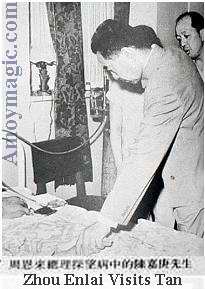
Tan’s Final Years During his last years Mr. Tan served in many posts, including Chairman of Returning Overseas Chinese League, Member of the Standing Committee of the National People’s Congress, and Vice-Chairman of the CPPCC. He was also responsible for innovations like China’s first sea-spanning bridge (the award-winning Xiamen-Jimei bridge), the Jimei Dragon Boat Pool, which has hosted numerous domestic and international aquatic events, and Jimei’s 15 storey Nanyuan Building, which has a navigational light on the roof to guide fishermen safely home.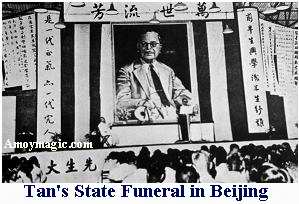
Mr. Tan died of cancer in 1961, and after a State Funeral in Beijing, a special train transported his body to his hometown of Jimei. Tan left behind three million Yuan in banks, but the man who gave like a prince and lived like a pauper evidently expected his descendants to do the same—or make their own fortune. He left no money to his family, but gave half a million to Jimei School Foundation, half a million to construct Beijing’s Overseas Chinese Museum, and over two million Yuan for education.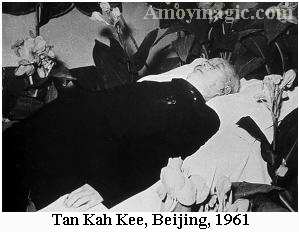
Tan’s International Legacy Altogether, Mr. Tan gave an estimated 100 million USD towards education, both in China and abroad, and the Tan Kah Kee Foundation has been awarding a Postgraduate Scholarship since 1983. In 1986, Nobel Prize Laureate Prof. C.N. Yang set up the Tan Kah Kee Inventors’ Award, and in 1992, Prof Yang and two other Nobel Prize Laureates, Prof Samuel C.C. Ting and Prof Li Yuan Tseh, together with Prof Changlin Tien, former Vice-chancellor of the University of California at Berkeley, and Prof Wang Gungwu, former President of Hong Kong University, set up the Tan Kah Kee International Society Foundation to the advancement of education and culture in the spirit of Tan Kah Kee.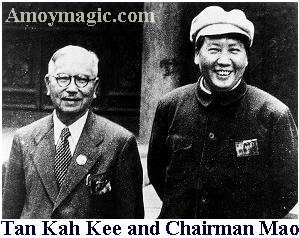 In 1991, Singapore’s president, Dr. Wee Kim Wee, launched the University Endowment Fund in honor of Mr. Tan, and set a goal of raising 1$ billion for education. On 11 March, 1990, the International Asteroid Center of China named Asteroid 2963 “Tan Kah Kee Star.” The naming ceremony was held at Xiamen University.
In 1991, Singapore’s president, Dr. Wee Kim Wee, launched the University Endowment Fund in honor of Mr. Tan, and set a goal of raising 1$ billion for education. On 11 March, 1990, the International Asteroid Center of China named Asteroid 2963 “Tan Kah Kee Star.” The naming ceremony was held at Xiamen University.
Lastly, the School of Chemistry in my home state’s University of California, Berkeley, has a “Tan Kah Kee Hall.” I hope more and more foreigners and Chinese alike will come to understand, and emulate, Tan Kah Kee’s spirit of sacrificial giving.
“A good traveler is one who does not know where he is going to, and a perfect traveler does not know where he came from.” Lin Yutang -
Quote Loor "is there anyone else out there that will be able to do a better job? I'm not saying one way or the other, but change for the sake of change is not always good "
Political change like having a woman as a Singapore Prime Minister or Deputy Prime Minister, is almost unthinkable in a PAP male dominated CEC, whose leadership largely come from the military brass.
Why would such a change be bad if talent scarce SG opens its political options to the other half of the population for its top leadership?
Hence having a woman as a Prime Minister, Deputy Prime Minister or for the matter a first female military general is totally about merit and not change for the sake of change.
-
Originally posted by qpicanto:
"is there anyone else out there that will be able to do a better job? I'm not saying one way or the other, but change for the sake of change is not always good "
The anglophile bastard Harry Lee Kuan Yew like change or don't like change, when the times comes for change, he also cannot stop.
-
Progress?
-
Originally posted by qpicanto:
Quote Loor "is there anyone else out there that will be able to do a better job? I'm not saying one way or the other, but change for the sake of change is not always good "
Political change, for example having a woman as PM/DPM, might be unthinkable in a PAP's male dominated CEC, which derives its leadership largely from military and unions .
Why would such a change be bad if talent scarce SG opens its political options to the other half of the population for its top leadership. Hence having a woman as a PM/DPM is totally about merit and not change for the sake of change.
fair enough - if the people think there are candidates that are more suitable, male or female, then by all means speak with your vote.
i wouldn't think there are actual rules/guidelines based on gender in politics are there?

-
Originally posted by Loor:
fair enough - if the people think there are candidates that are more suitable, male or female, then by all means speak with your vote.
i wouldn't think there are actual rules/guidelines based on gender in politics are there?

Currently there are at least 6 former top military officers in the cabinet, one definitely can see a very straight line coming out from Mindef to the Presidential Palace where the cabinet meets. Not forgetting PAP- controlled PA, is also headed by a former airforce general.Don't know is this considered a guide.
-
a truly great man with great visions from the most depressed situations to peace times..
-
2011 GE showed once again how the GRC is flawed :
Seats in Parliaments
Opp. Votes( 40%) =






PAP Votes( 60%) =

















































































At one glance, one can tell that something is not right in the PAP electoral system.
40% of opposition votes could easily have translated to at least 25 seats in Parliament without the GRC system.
40% is more than a third of total votes cast.
Not only opposition parties are disadvantaged but the predictability of electoral system is hijacked by constant changing of boundaries.
More voters are presumably are turning away from such a unfair system .
-

-
Mainly is the foreign talent policy. They hire too many foreigners until most singaporeans are squeezed out and unable to find a good job.
Other problems like overcrowding on mrts and on roads are secondary.
-
LKY is actually a puppet..GKS i think he contributed more than LKY...
GKS=Goh Keng Swee..
-
Originally posted by Edd1:
LKY is actually a puppet..GKS i think he contributed more than LKY...
GKS=Goh Keng Swee..
LKY is power crazy, great contributor to Singapore, Goh Keng Swee is low profile.
-
foreigns foreigns foreigns
-
CKS is stupid, LKY more cleverer, hold more power and live longer
-
http://forums.hardwarezone.com.sg/showthread.php?t=3492569
I saw this in another forum and I LOL.
Times are bad.

-

-
now Foreigners are also squeezing Singaporeans money for the dead. The malaysians and taiwanese build a modern urn building The Nirvana Memorium here and then they play " trading " of urns place. One malaysian, shown on TV, bought a row of urns and sold them at higher price for a profit. This malaysian only studied till High School , is 31 years, now he bought a honda car with the profit.
Land is scarce and these foreigners know that Singaporeans will want to be buried here. Do you think that profit earning malaysian want to be buried here? So they play games and purposely jack up the place of a urn's place. In Taiwan, the mafia has a hand in this dead people''s business because they know they can earn lotsa of money from it.
I am not surprised if the Taiwan mafia has a hand in Singapore dead people 's business too.
Soon we will be told by the foreigners that one urn place will cost as much as a HDB flat.They are laughing all the way to the bank and building big houses back home. We Singaporeans can only cry.
-
The govt allow the foreigners to have their own world here. There is nothing we can do.
Want a change, vote the PAP out.
-
Originally posted by qpicanto:
2011 GE showed once again how the GRC is flawed :
Seats in Parliaments
Opp. Votes 40% (@@@@) =






PAP Votes 60% (@@@@@@) =

















































































At one glance one can tell that something is not right in the PAP electoral system .
40% of opposition votes could easily have translated to at least 25 seats in Parliament without the GRC system. 40% is more than a third of total votes cast.
Not only opposition parties are disadvantaged but the predictability of electoral system is hijacked by constant changing of boundaries.
More voters presumably are turning away from such a system .
How come the incumbents have a bigger smile than the opposition?

-
Originally posted by qpicanto:
2011 GE showed once again how the GRC is flawed :
Seats in Parliaments
Opp. Votes 40% (@@@@) =






PAP Votes 60% (@@@@@@) =

















































































At one glance one can tell that something is not right in the PAP electoral system .
40% of opposition votes could easily have translated to at least 25 seats in Parliament without the GRC system. 40% is more than a third of total votes cast.
Not only opposition parties are disadvantaged but the predictability of electoral system is hijacked by constant changing of boundaries.
More voters presumably are turning away from such a system .
The choice lies with the voters who are all ready to give them the mandate.
It will still be status quo in 2016.
-
Originally posted by winsomeea:
The choice lies with the voters who are all ready to give them the mandate.
It will still be status quo in 2016.
Times are bad.

-
People have matured through education and internet connectivity world wide, they are well informed and live happily. They stands for true PAP of its original version - people action party, and not party action party :DDD party action only loves their party, while people action loves all people non-discriminatively :DDD in fact, pap should be happy for this...
-
Originally posted by winsomeea:
The choice lies with the voters who are all ready to give them the mandate.
It will still be status quo in 2016.
Mandate was given, power distribution is status quo till 2016. Until then, support for the PAP and the Oppositions (including those outside the parliament) depends on what they do! If they can make a difference, things will change.
for those who are not doing anything, it is no status quo, it is deteriorating.
-
Originally posted by charlize:
How come the incumbents have a bigger smile than the opposition?

苦笑 -
The mandate was provided and the same scenerio still happened after 8 years of complaining.
So, will 2016 be any difference to the lion city ?
The local are conditioned to fear change so the pain of uncertainty is more than the pain of enduring existing situation.
That is just human nature.
What turn me away ?
They talked a lot on the press about changing and improving the place.
When the shit hit the ground, they are nowhere to be seen and no one have the courage to come forward to clear the shit.
So, how new can the party be if they cannot face and solve problems and how they can reclaim what they have lost without losing more when they are still clueless why they did badly ?
They can only change when they start listening to the hard truth and stop talking.
But, it will never happened.